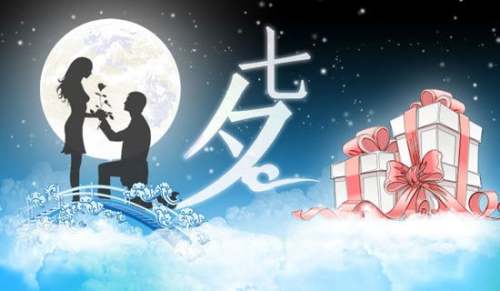关于描述七夕的英语作文
无论是身处学校还是步入社会,大家都尝试过写作文吧,作文是一种言语活动,具有高度的'综合性和创造性。相信很多朋友都对写作文感到非常苦恼吧,下面是小编为大家收集的关于描述七夕的英语作文,仅供参考,欢迎大家阅读。

Legend has it that on this evening, Niulang, or the Cowherd, and Zhinu, or the Weaving Maid, meet each other for their annual tryst on a bridge formed by sympathetic magpies over the Milky Way. If it happens to rain that night, a Chinese elder might say it is Zhinu weeping after meeting her husband Niulang on the Milky Way. This day used to be commemorated as a festival for girls and also for young people in love. As the story goes, there was once a cowherd, Niulang, who lived with his elder brother and sister-in-law. But his sister-in-law disliked and abused him, and the boy was forced to leave home with only an old cow for company. The cow, however, was a former god who had violated celestial rules and had been sent to earth in bovine form. One day he led Niulang to a lake where fairies came bathe on earth; among them was Zhinu, the most beautiful girl and a skilled seamstress. The two fell in love at first sight and were soon married. They had a son and a daughter, and their happy life was held up as an example for hundreds of years in China. Yet in the eyes of the Jade Emperor, the Supreme Deity in Taoism, marriage between a mortal and a fairy was strictly forbidden. He sent his empress to fetch Zhinu. Niulang grew desperate when he discovered Zhinu had been taken back to heaven.
Driven by Niulang's misery, the cow told him to turn its hide into a pair of shoes after it died. The magic shoes whisked off Niulang, who carried his two children in baskets strung from a shoulder pole, off on a chase after the empress. The pursuit enraged the empress, who took her hairpin and slashed it across the sky, creating the Milky Way which separated husband from wife. But all was not lost. An army of magpies, moved by their love and devotion, formed a bridge across the Milky Way to reunite the family. Even the Jade Emperor was touchhed and allowed Niulang and Zhinu to meet once a year on the seventh night of the seventh month. It is said that at that night, children can hear the private conversation between the Weaving Maid and the Cowherd under the grape trellis. This is how Qixi came to be. In actuality, the festival can be traced back to the Han Dynasty (206 BC-AD 220). People would traditionally look up at the sky and spot a bright star in the constellation Aquila, as well as the star Vega, identified as Niulang and Zhinu. The two stars shine on opposite sides of the Milky Way. Qixi is also known as the "Begging for Skills Festival" or "Daughters' Festival." In the past, girls would hold ceremonies on the day and pray to Zhinu for wisdom, dexterity and a satisfying marriage.
In some parts of Shandong Province, young women would offer fruit and pastries to her in return for a blessing of intelligence. If spiders were seen to weave webs on sacrificial objects, it was believed that Zhinu was offering positive feedback. In other parts of China, the custom was for seven close friends to gather to make dumplings. They would put into three separate dumplings a needle, a copper coin and a red date, which represented perfect needlework skills, good fortune and an early marriage respectively. Young women in southern China wove small handicrafts with colored paper, grass and thread. Weaving and needlework competitions would be held to see who had the best hands and the brightest mind, prerequisites for being a good wife and mother. However, these ancient traditions and customs have been slowly dying out. Fewer people than ever gaze at the heaven on that day to pick out the two stars shining bright on either side of the Milky Way -- that is, if they even know on which day Qixi falls.
